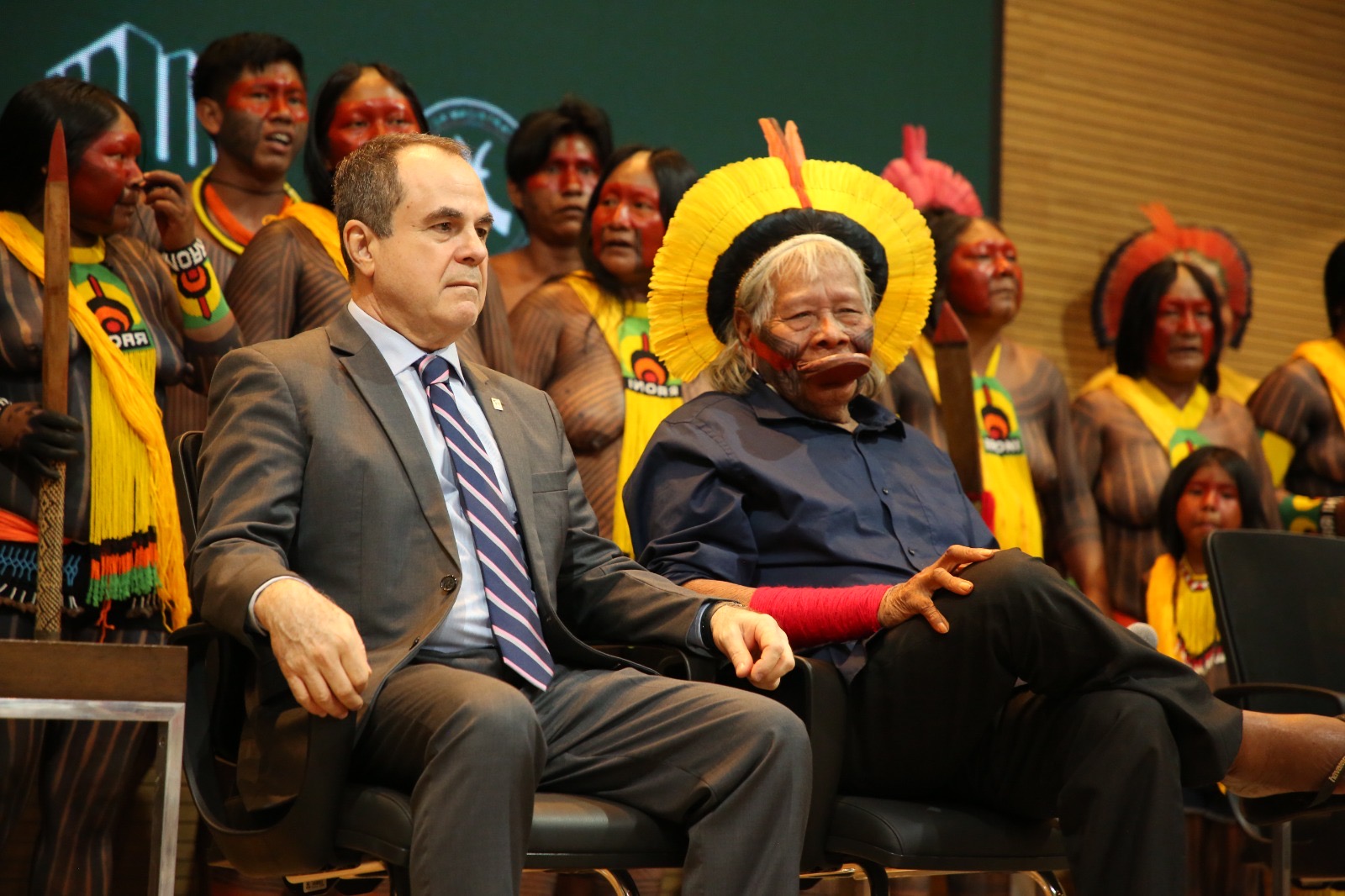
DO YOU KNOW WHAT IS A labret?
It is a wooden adornment on the lower lip that signals the warriors and spokespeople of the indigenous people. More than a leader, Chief Raoni, of the Kaiapó people (or Mebêngôkre, as they call themselves), carries with him the role of leadership and mediation of the rights of the Brazilian indigenous community.

Today, May 21st, is a historic day not only for the judiciary of the State of Tocantins, but also for the State of Tocantins. Known internationally as one of the main voices in the indigenous and environmental struggle, Chief Raoni spoke on Tuesday afternoon (May 21st) to an auditorium full of people at the Court of Justice of the State of Tocantins (TJTO).
Demonstrating the power and relevance of the indigenous leader, representatives of the Kaiapó, Tapirapé, Juruna, Xavante, Xerente, Karajá, Javaé, Krahô and Apinajé peoples were present.
Opening
Opening the event, Justice Marco Villas Boas, General Director of the Superior School of the Judges of the State of Tocantins (Esmat), highlighted the role of the indigenous women in environmental issues and recalled the importance of the indigenous women in the history of Brazil.
"I especially salute the indigenous women present at the Court this afternoon because they have made a significant contribution to ensure that indigenous communities have more structure in their activities, in dealing with reforestation, with environmental programs and really take care of the structuring of indigenous societies," he said.
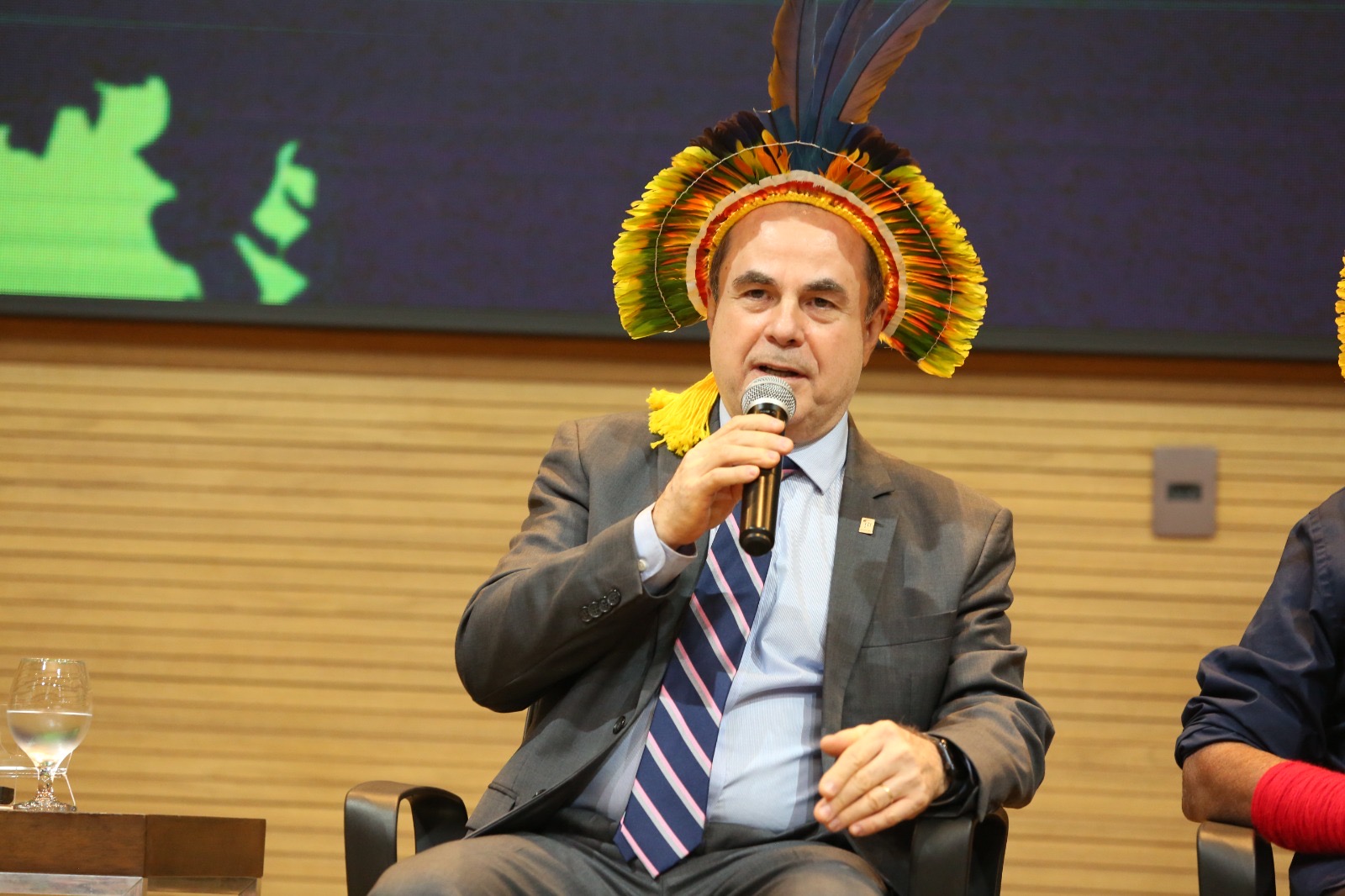
"We are diverse peoples, with diverse cultures, dialoguing with each other, and we have to respect each other; that's why here in the State of Tocantins we have made this dialogue possible with the indigenous peoples here in the State, looking for an interlocution, so that we can better understand indigenous society, and they, the Western system," said Justice Marco when contextualizing the communicative process of the Judiciary of the State of Tocantins with the indigenous communities of the State of Tocantins.
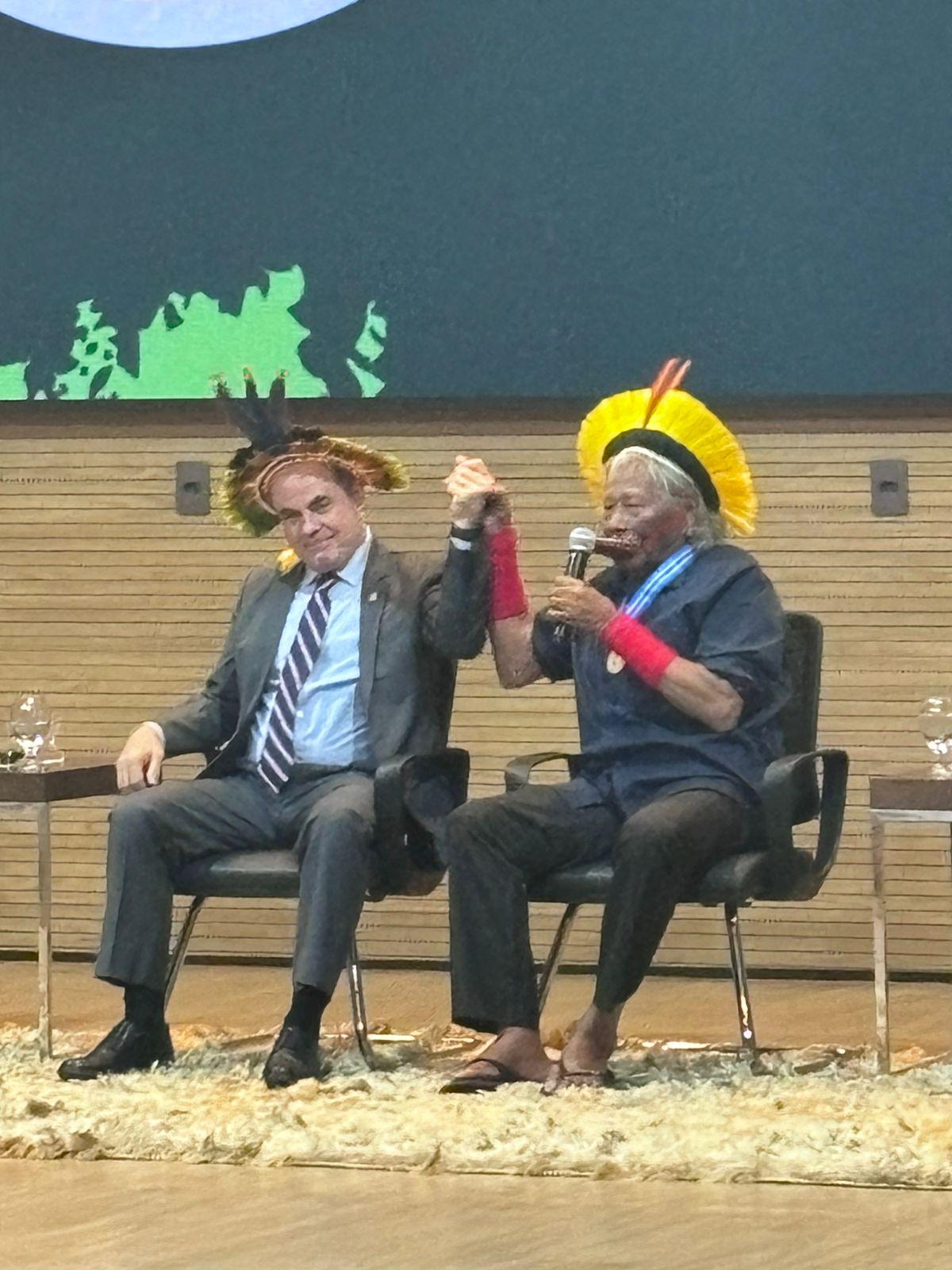
In his speech, the General Director pointed to the challenges posed by the differences in objectives between Western societies and indigenous peoples, such as economic interests. He also warned of the importance of building a beneficial dialogue, preserving the environment and respecting the limitations and possibilities of nature.
"That's why we have to learn these approaches [on how to care for and value nature] and respect from the indigenous peoples," he said.
In his remarks, magistrate Welligton Magalhães, Deputy Director of Esmat and co-author of the program for the Socio-Political Inclusion of the Indigenous Peoples, expressed his happiness at the event, pointing to the importance of the dialogue that has been built by state institutions with the indigenous peoples of the State of Tocantins.
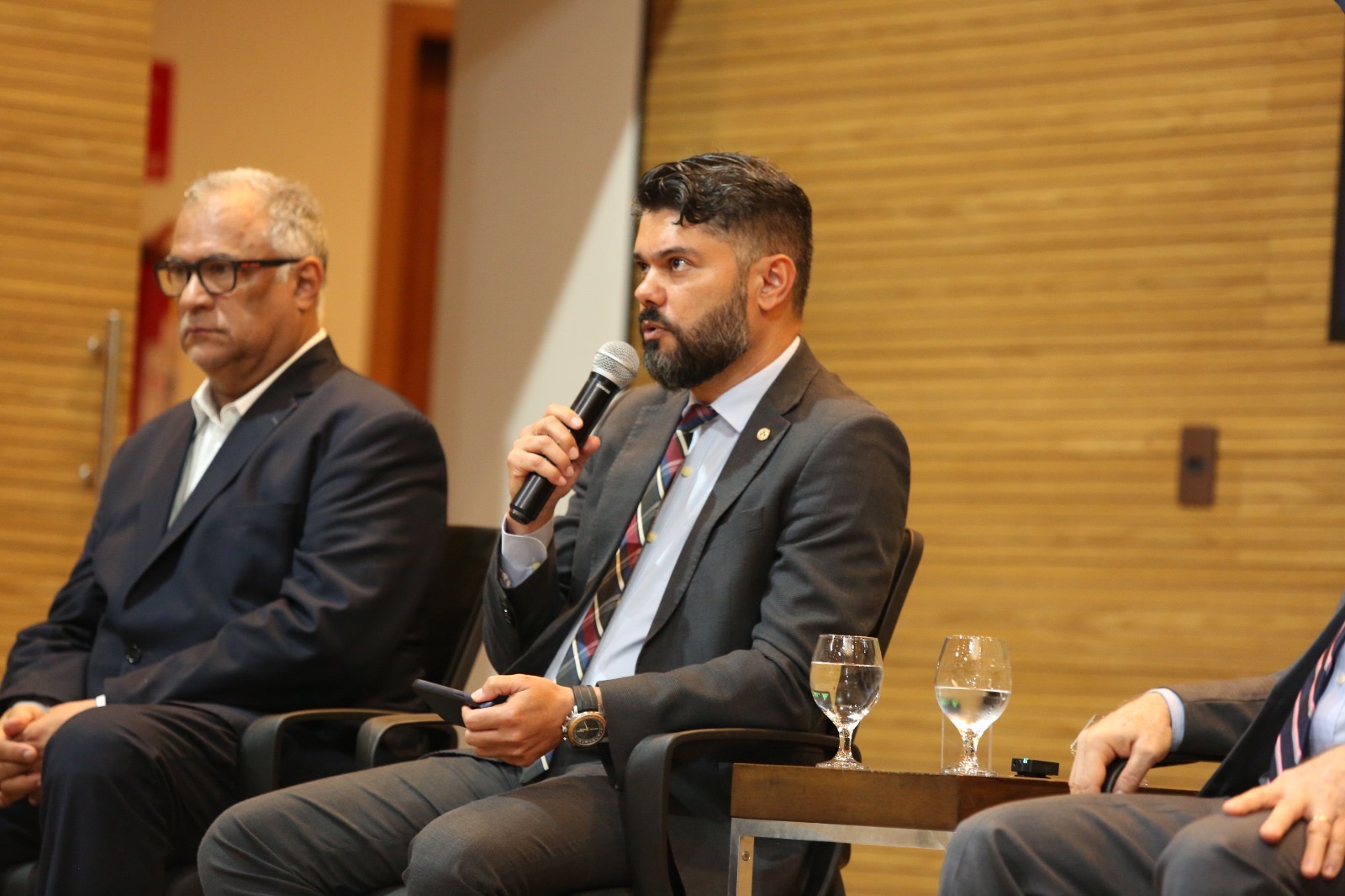
"In this 2024, it has been ten years that I had the first opportunity to visit the Santa Isabel village, the Karajás, on Bananal Island, (...) and since then, the Judiciary of the State of Tocantins, through Esmat and the TRE-TO, has been developing a work of constant dialog with the indigenous communities. Today it seals the deal so that we can continue this work, since this dialogue is so important, not only to discuss the issue of human rights, but also the protection of the environment and indigenous peoples," he said.
"After thirty-eight years at FUNAI, and I'm about to retire, I couldn't leave the agency without this great tribute to Chief Raoni, the greatest indigenous leader in Brazil, with international recognition. I want to thank all the indigenous communities present and say that I feel very happy to have this dialogue with these peoples who accepted the invitation so that we could pay this tribute," added the Federal Prosecutor of the National Foundation for the Indigenous Peoples (FUNAI), Lusmar Soares Filho, citing the symbolic importance of the presence of Chief Raoni in the State of Tocantins, as a political voice that spreads messages and promotes transformations.
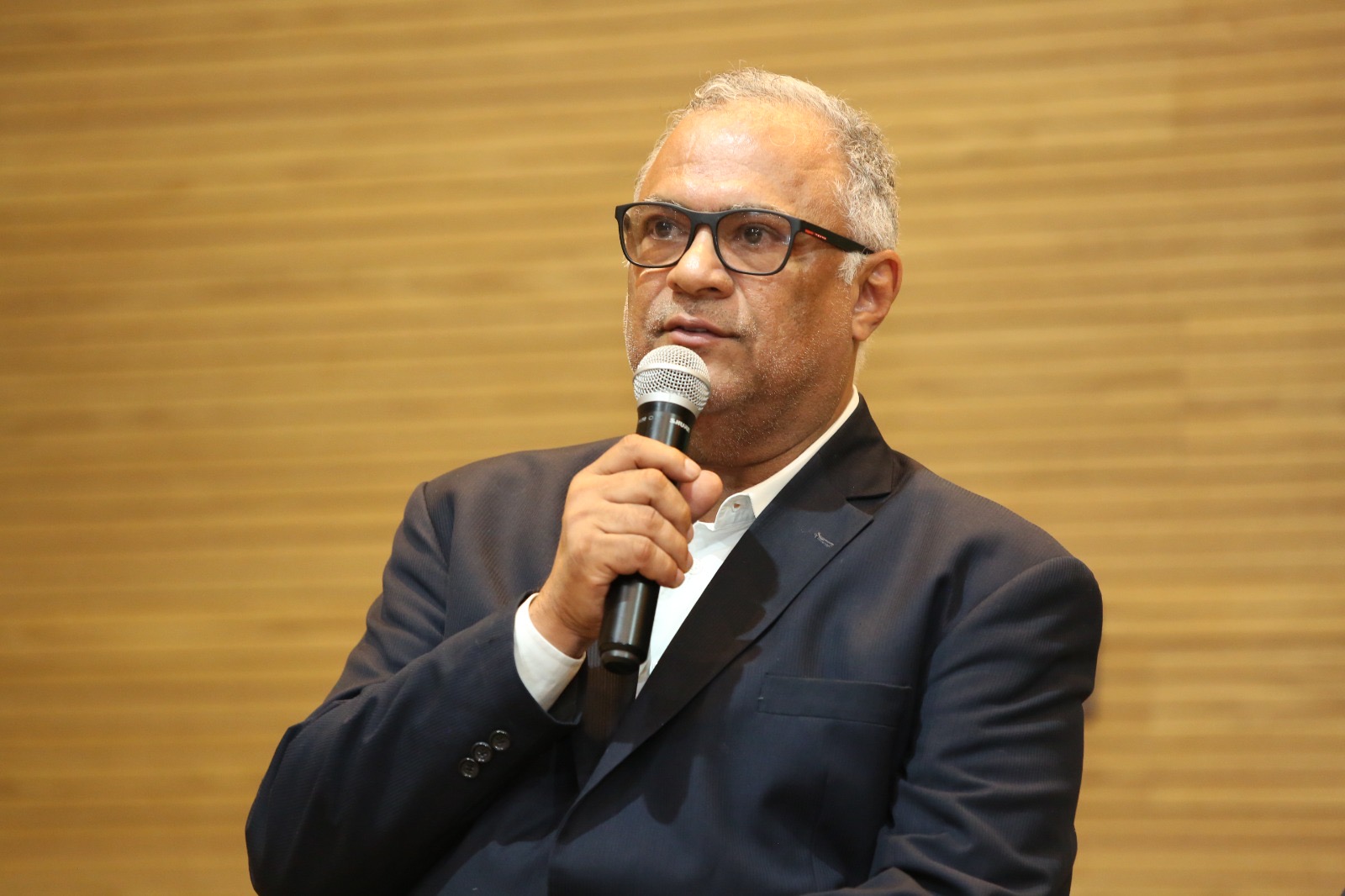
"Now I can retire, because this is a lifelong dream for me: I wanted to pay this tribute and I had this opportunity thanks to the Superior School of the Judges of the State of Tocantins," concluded Lusmar Soares."
Articulating in his mother language, Chief Raoni left powerful reflections for the people of the State of Tocantins and explained the importance of working together with the whites.
In his words, Raoni made it clear that caring for the land comes from the ancestors and must be preserved by the elders and perpetuated by the new generations.
When talking about the impacts and negative consequences of human interference in nature, the indigenous leader emphasized the need for dialogue. "We have always been against the construction of dams or any other action that harms the environment and its people," he said.
Translating the words of the Chief, the indigenous Paxton conveyed the strength, courage and weight of the voice of Raoni in the fight for respect for the environment and the defense of indigenous territories and peoples.
"As long as I have the strength, I'll be fighting," he added.
TRIBUTES
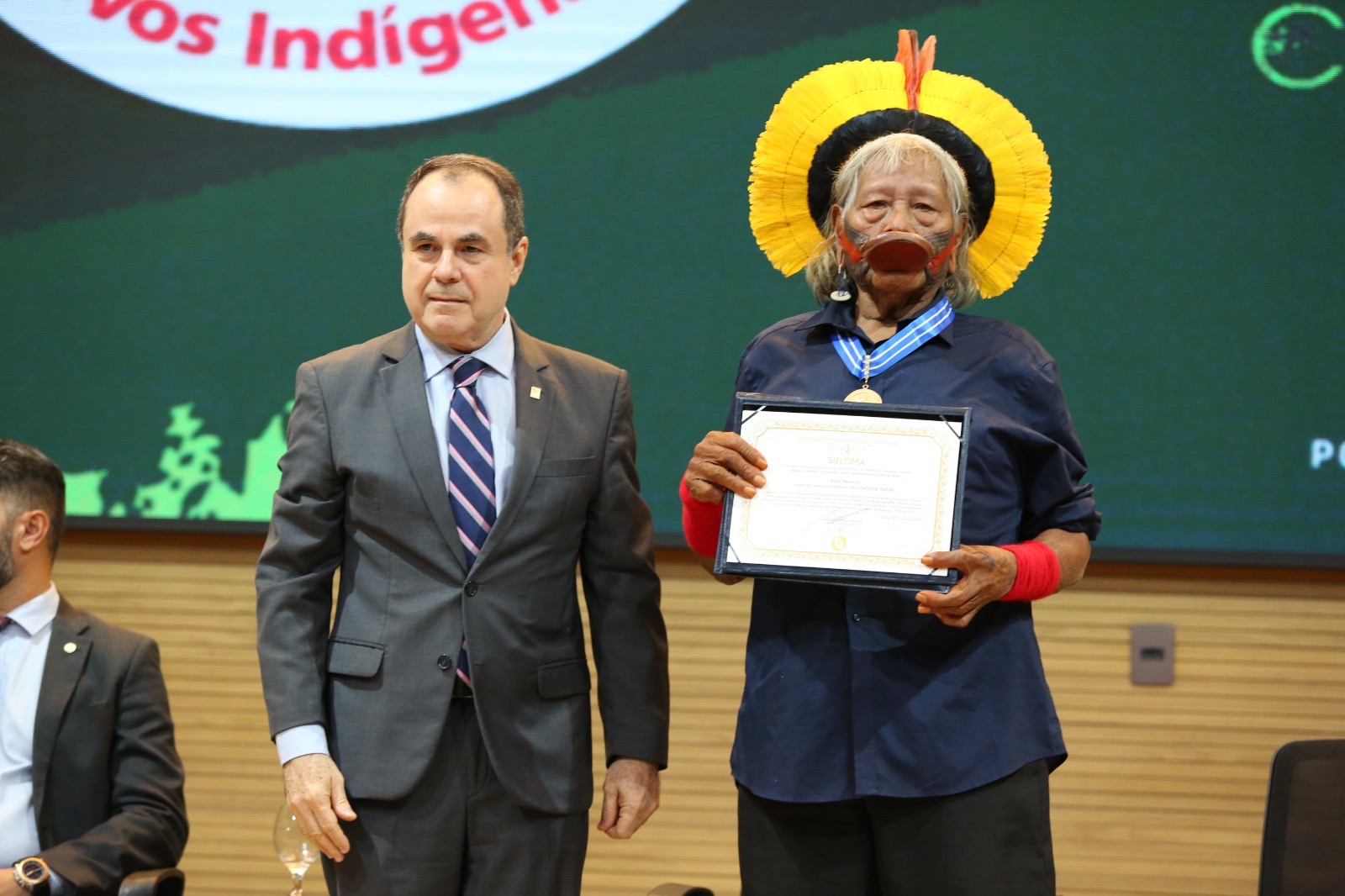
The contributions of Chief Raoni to the Brazilian jurisprudence reverberate throughout the country and beyond. With this in mind, Justice Marco Villas Boas presented the "Antonio Rulli Junior" medal, commemorating the fifteenth anniversary of Esmat, to those who have collaborated and will collaborate with the School and with the improvement of the Judiciary of the State of Tocantins and Brazil.
On that occasion, Raoni presented Justice Marco with a Cocar, in recognition of the work he has done fighting for and defending the indigenous peoples of the State of Tocantins.
The accessory, usually made from bird feathers, has great cultural and symbolic importance for many indigenous communities. It can signify status, spirituality, symbolism of wisdom and/or connection with nature.
Sepot
Narubia Silva Werreria, the first indigenous woman to take over a State Secretariat in the State of Tocantins - the Secretariat for Original and Traditional Peoples (Sepot) - congratulated Esmat on holding the event and told us a little about the conciliatory role of Chief Raoni in indigenous conflicts in the State of Tocantins and in the fight for the demarcation of land for Brazilian indigenous peoples.
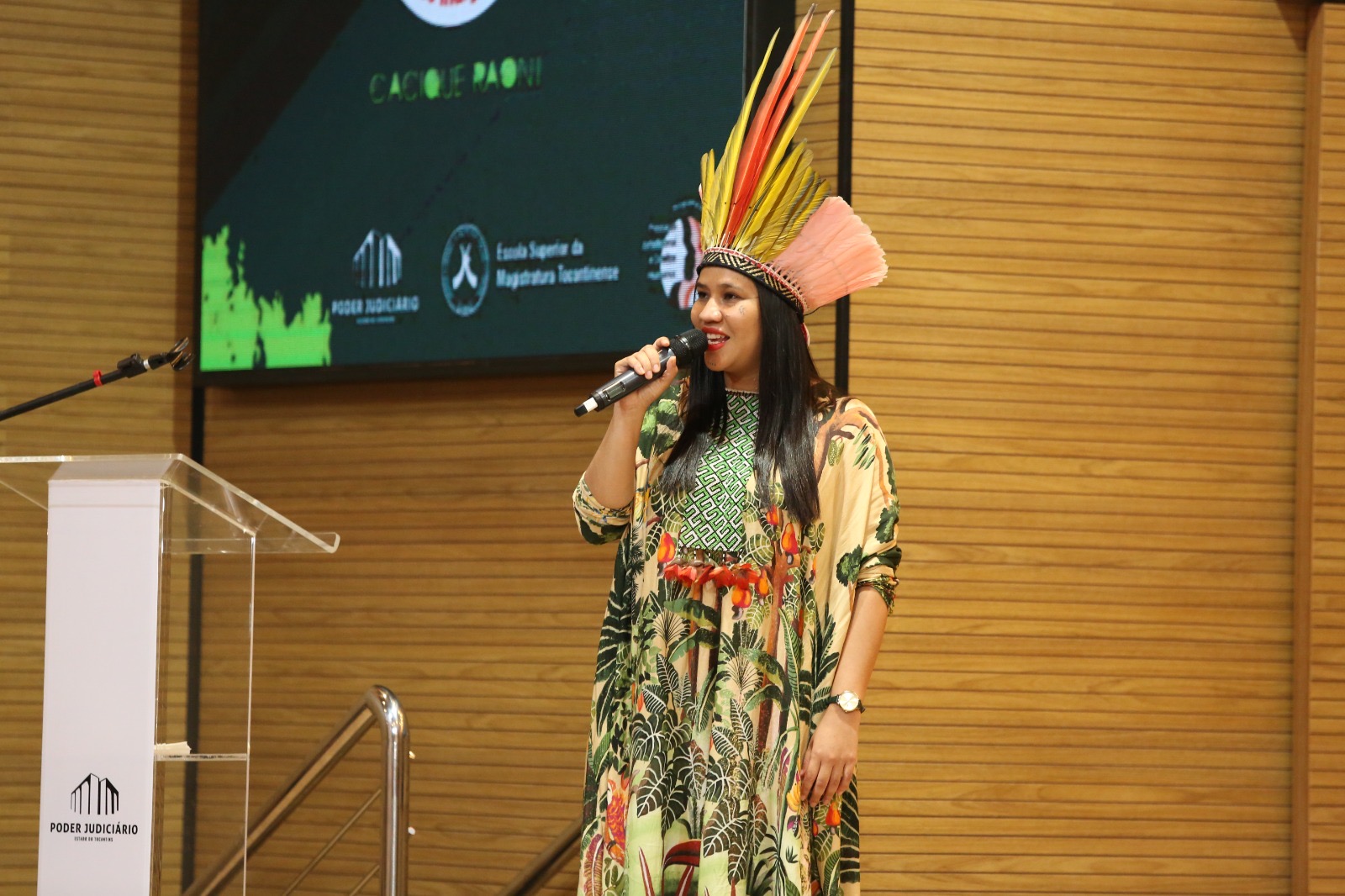
"Record this moment in your memories, we are all experiencing a historic moment, because we are in the presence of the greatest indigenous leader in Brazil (...). Raoni, for us [Karajás], represents pacification in person, in my people, that person is Hioló, a peacemaker, which means great prince, the one who comes and has the wisdom to unite when the leaders (chiefs) are fighting," she explained.
Set up just over a year ago, Sepot works among federal, state and municipal bodies to promote, coordinate and implement public policies for the inclusion and valorization of the original and traditional peoples of the State of Tocantins.
Programming
In addition to the lecture, the event also included some presentations of blessings and tributes from the Kaiapó, Tapirapé, Juruna, Xavante, Xerente, Karajá, Javaé, Krahô and Apinajé to Chief Raoni and the presentation of trophies from the Esmat Alive Culture award.
Conceived by Judge Welligton Magalhães and held by the Superior School of the Judges of the State of Tocantins (Esmat), with the support of the Court of Justice of the State of Tocantins (TJTO), the event reaffirms the importance of the fight for inclusion and preservation of the rights of indigenous peoples and the environment, for environmental and climate justice.
Presences
Present were: Justices Angela Prudente and Angela Haonat, Justice Eurípedes Lamounier, representatives of the Public Defender's Office of the State of Tocantins, the BAR - Tocantins Section -, the Regional Electoral Court of the State of Tocantins and the State Prosecution of the State of Tocantins.




